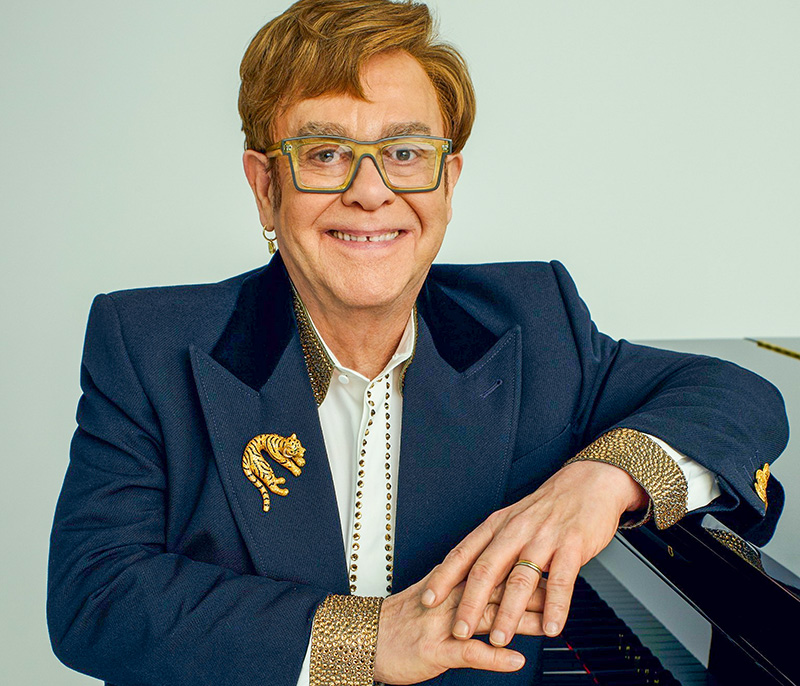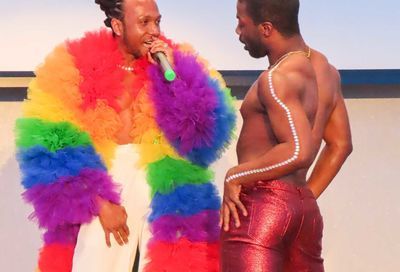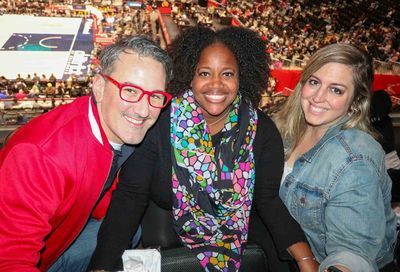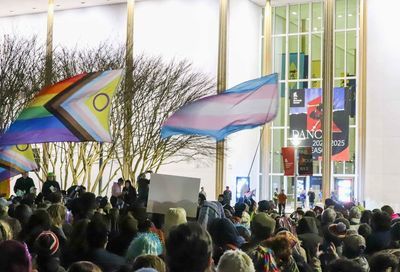Whitman-Walker Health raises $444,000 with Walk and 5K to End HIV
Walk director says despite being held virtually this year, the support the walk received shows people's dedication to combating the HIV epidemic.

Whitman-Walker Health, the federally qualified health center that specializes in HIV-centric and LGBTQ culturally competent care, has raised $444,000 through its annual Walk & 5K to End HIV.
The official event was held virtually this year due to the COVID-19 pandemic, but staffers and volunteers were on hand at both the LIZ building at 14th and R Streets, NW, and the Max Robinson Center, on Martin Luther King Avenue in Southeast, to pass out T-shirts, take same-day registrations, and cheer on walkers or runners who opted to run or walk one of two routes on their own while socially distancing.
Additionally, holding the event virtually meant that people from outside of Washington, D.C. could participate on their own while still raising money for the cause. Instagram and Facebook posts by those participating showed people in Maryland, Virginia, Puerto Rico, and even as far as London promoting the event.
David Mallory, Whitman-Walker Foundation’s senior director of annual giving and the director of the Walk to End HIV, was present at the LIZ building and said that despite lower turnout, there was still a celebratory atmosphere surrounding the event.
“I always talk about the sense of community the walk fosters, and it was doubly touching this year, because it was the first time a lot of folks had seen one another,” Mallory told Metro Weekly. “It was like a little community block party right there at the corner of 14th and R, and the spirit was just really outstanding. Folks came from Fredericksburg just to do the walk because they support Whitman-Walker and they support the cause of ending HIV.
“It was certainly a smaller crowd, but there was still that spirit of community and support,” added Mallory. “I think we probably saw, over the course of morning, maybe 100 folks banding together and walking, starting about 10 a.m. We had several runners who ran and timed their own runs, and they were wearing the downloadable bibs that we provided them.
“The staff at Max Robinson said people were just so appreciative that we were out and that we were there in the community, and were thankful for the services we provide. So, all in all, it was just a really kind of spirit-lifting morning.”
While Whitman-Walker had initially set a goal of raising $450,000 this year, Mallory noted that donations for the Walk to End HIV are being accepted through the end of the year, meaning it is likely that Whitman-Walker will surpass its desired goal by that time.
See also: Whitman-Walker breaks ground on new St. Elizabeths health center in Ward 8
“Donations are still coming in. Folks are going to their companies and asking for corporate matches for the donations that they’ve made. And just like every prior year, there’ll be some surprise donations that come in after the fact,” he said.
“So I’m really pleased with how we did financially. Team Whitman-Walker has so far raised $45,000 alone. And I know there’s some heavy hitters on our team, some of our colleagues, who are still really pushing to raise much more.”
While the annual 5-kilometer walk and run typically attracts massive crowds, Mallory praised the flexibility and adaptability of organizers, who were forced to rely more heavily on promoting the event via social media and aggressive email campaigns to remind people to participate.
“Having been forced to pivot with COVID the past couple of years, it made us smaller, a little more nimble, a little more creative,” he said, dubbing the past weekend a success. “Hopefully, next year, we can return to more of a normal format. But I think that remains to be seen.
“We just don’t know what challenges we’ll face next year. But whether this is a blip or not, I think the primary takeaway is that people are still committed, still want to remain connected to the cause, and to Whitman-Walker, and still want to do what they can.”

Proceeds from the event will benefit Whitman-Walker’s HIV-related programs and services.
“The funding certainly has a huge impact on the services that we provide for a donation or for free, especially our sexual health and wellness programs, like the twice weekly — at least pre-COVID — HIV and STI testing,” Mallory said. “But the HIV care we provide spans all of our programming, whether it’s our behavioral health programs or peer support groups for people newly diagnosed with HIV.
“The money we raise goes to support the work of the health system in our specialty care and services, but also maintains a really strong foundation so that we can really realize our dreams with St. Elizabeths in 2023,” he said, referring to a new, larger health care facility set to open in Southeast D.C. that will allow Whitman-Walker to increase its patient load.
“We’re certainly humbled by the support we receive every year, which allows our team to continue to provide the care that we’re known for.”
See also:
Virginia gay Black man’s family files $26 million lawsuit against local police for April shooting
White House calls Texas bill restricting transgender athletes’ ability to compete “hateful”
Human Rights Campaign knocks Glenn Youngkin over opposition to marriage equality
Support Metro Weekly’s Journalism
These are challenging times for news organizations. And yet it’s crucial we stay active and provide vital resources and information to both our local readers and the world. So won’t you please take a moment and consider supporting Metro Weekly with a membership? For as little as $5 a month, you can help ensure Metro Weekly magazine and MetroWeekly.com remain free, viable resources as we provide the best, most diverse, culturally-resonant LGBTQ coverage in both the D.C. region and around the world. Memberships come with exclusive perks and discounts, your own personal digital delivery of each week’s magazine (and an archive), access to our Member's Lounge when it launches this fall, and exclusive members-only items like Metro Weekly Membership Mugs and Tote Bags! Check out all our membership levels here and please join us today!






















You must be logged in to post a comment.